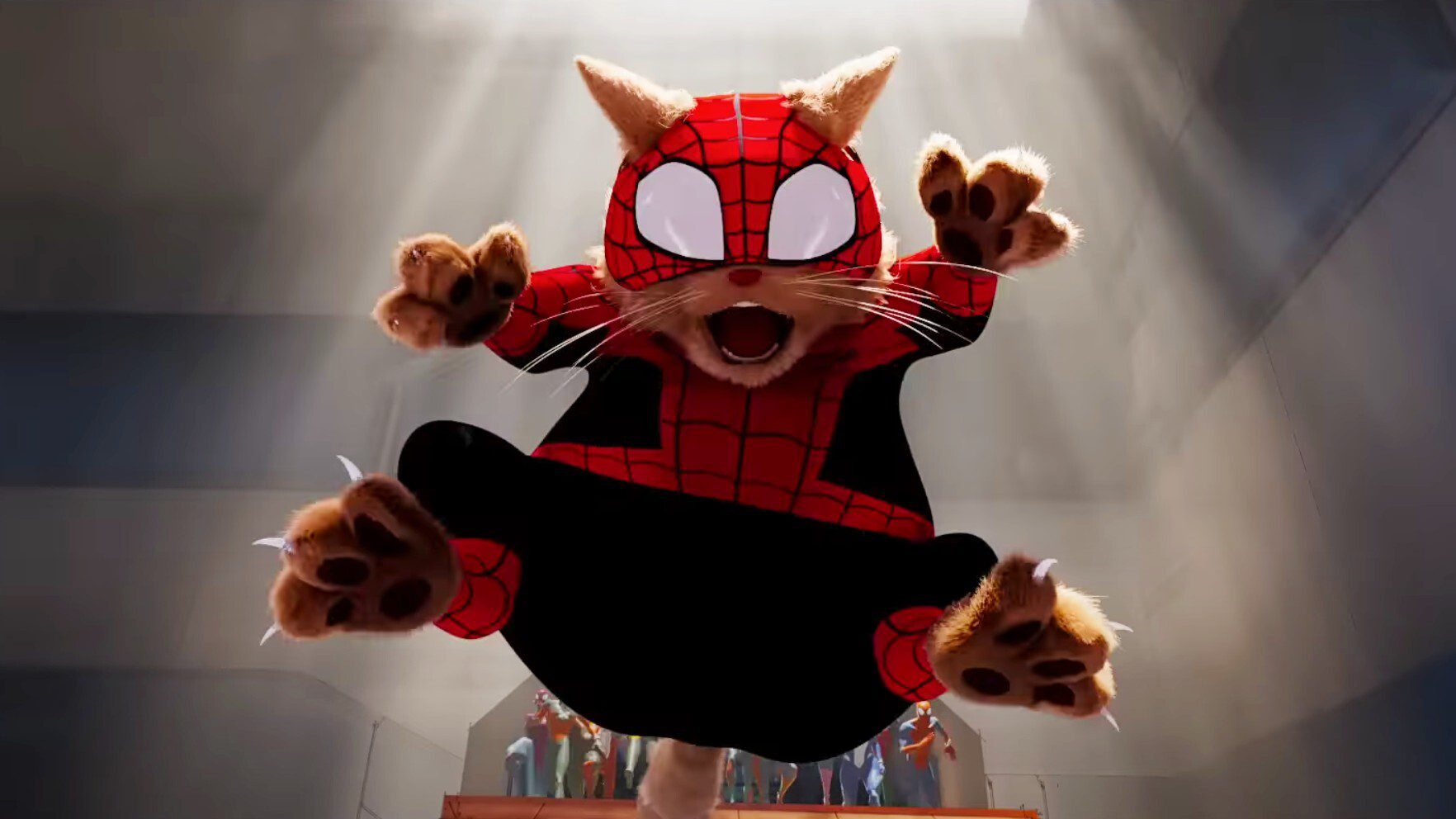It’s impossible to overstate how high the bar the first Into the Spider-Verse set for the sequel to clear. The only thing more impossible to exaggerate is how easily and mightily the sequel Across the Spider-Verse clears it. The Sony Spider-Man movies are theatrical experiences akin to George Miller’s Mad Max: Fury Raod, a triumph of form and storytelling that left me, at times, literally breathless.
Across the Spider-Verse has a new trio of directors in Joaquim Dos Santos, Kemp Powers, and Justin K. Thompson. They, along with the screenwriters Phil Lord, Christopher Miller, and David Callahan, have once again crafted an installment that puts the entire MCU franchise to shame for its utter lack of visual imagination and narrative lushness. Yet, remarkably, Across the Spider-Verse is so spectacular that even the one glaring misstep it makes that is so miscalculated it threatens to destroy the delicate balancing act of servicing the market’s needs, and the artists’ needs don’t destroy the masterpiece, though it does leave it flawed. Like looking at the Mona Lisa with a melted gummy bear on the edges of the frame.

My god, what an experience to sit in the dark and let the imagery of Across the Spider-Verse overwhelm you. Like cinematic manna from heaven, it revitalizes the thirst for going to the movies in a way few films can. I sat in the dark for over two hours, holding my breath as Across the Spider-Verse leaped gleefully from one scene to another. Santos, Powers, and Thomposn and their army of animators push the form to its limit, merging the style of comic pencilers’ use of cells on the page with the frame on the screen, movement, and aesthetic in joyous harmony; Across the Spider-Verse veers into cinematic nirvana.
Lord, Miller, and Callahan take a familiar story and surgically rip into the guts of the myth and the favorite/cursed word of every fan everywhere “cannon.” More specifically, what makes Spider-Man “Spider-Man,” but more importantly, what makes Miles Morales (Shameik Moore) fundamentally not Peter Parker?
I have long been bothered by modern fandoms’ obsession with lore and mythology, not because it is good or bad, but because fandom tends to obsess over canon to such a degree that they smother all imagination and creativity. But Across the Spider-Verse takes this obsession, this rock-solid belief that this is the way the story must go because it is how the story always goes, and smashes it against the wall.
The film challenges not just modern storytelling habits but fundamental comic-book ones. But living in an era in which fascism seems to be always constantly on the horizon, Across the Spider-Verse is a bracing reminder that change begets change begets change onward into infinity, but the results are never predictable. The only certainty is that change will happen.
It is that fear of a chain of events that established institutions and systems fear most. Even if they believe that they are good such as Miguel O’Hara (Oscar Issac), the head of all the Multi-Verse Spider-Man, they are blind to the damage they are doing by fighting changes. Miguel has tried to change things and failed; therefore, all other changes are doomed to fail.
He is so convincing that even our friends from Into the Spider-Verse, Gwen Stacy (Hailee Steinfeld) and Peter B. Parker (Jake Johnson), fall in line. Heck, the entire Peter Parker contingent is on his side as well. Though it tickles me to no end that the filmmakers understand that any large collective made up entirely of Spider-People is doomed to failure because there is no overcoming the essential Peter Parker-ness that comes with the territory. It’s like herding kittens.
Something that Hobie (Daniel Kaluhah), a punk Spider-Man, understands. I won’t list all the different Spider-Men we meet because I don’t have the time or the column inches. Suffice it to say that of all the new ones, Kaluhah’s anti-establishment antifa Hobie is my favorite. How could he not be?

Nor will I dive too deep into the story itself though it had my eyes well up with tears several times. First, however, I must say that the parallels between Gwen’s story with her father, Captain Stacy (Shea Wigham), and Miles’s parents, Captain Morales (Brian Tyree Henry) and Rio (Luna Lauren Velez), is a masterclass of writing in the way that each story informs and moves the other along. But my reluctance to talk about the story is not because of spoilers.
No, I won’t talk much about the story because it doesn’t matter. The real spoiler is: It ends on a cliffhanger. We’re talking Back to the Future II in steroids. It ended so abruptly that I felt disoriented. Nothing is resolved-it just ends.
To have such grand craftsmanship hobbled by crass marketing and modern franchise sensibilities borders on infuriating. Until “To be continued…” flashed onto the screen, I was unaware that two and a half hours had passed. I would have gladly watched another hour or four. However long they needed, I would have sat there, happily, enraptured by the emotional and sensory overload of heart-stirring thoughtful drama dancing across that massive screen. Across the Spider-Verse was movie magic on a level that is so rare that it’s easy to forget it exists and then nothing.

I mention this not to be a cranky old man but to warn you that this is an incomplete movie. Not since The Turning have I despised an ending with as much ire and ill-will as I do with Across the Spider-Verse. Had the previous two and half hours not been so transcendent, it would have been like a worm rotting the experience from the inside out. But Across the Spider-Verse is made with such vigorous love and care; every frame tended to with keen humanity that despite the bastard of an ending, it might be the best movie of the year.
And if it isn’t-then, we will have been spoiled with great art. How lucky we will be.
Images courtesy of Sony Pictures Releasing
Have strong thoughts about this piece you need to share? Or maybe there’s something else on your mind you’re wanting to talk about with fellow Fandomentals? Head on over to our Community server to join in the conversation!

